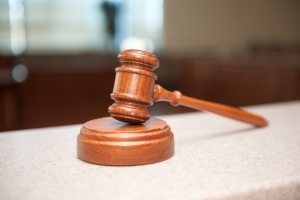In May, the Florida Supreme Court issued a ruling in Smallwood v. Florida in which justices held police in this state would need a warrant before searching a person’s cell phone.

Now, in a new decision handed down by the U.S. Supreme Court, the same is true nationwide.
Our Fort Lauderdale criminal defense lawyers know that the greatest significance of the Riley v. California case in the wake of the Smallwood ruling is that these rights have been solidly cemented. The Riley case sets a precedent and leaves defendants less vulnerable to a challenge on this issue.
Even more encouraging was that the U.S. Supreme Court decision, unlike the Smallwood ruling, was unanimous, offering a clear message on the issue.
The Riley case ruling will offer protection not only to the 12 million or so individuals who arrested in the U.S. annually, but will also assuredly apply to searches of laptop and tablet computers, as well as information culled from third parties, such as phone companies. Some businesses require warrants before a search.
While the opinion, written by Chief Justice John G. Roberts Jr., is contains numerous references to the “digital age” and how smartphones have transformed the way we connect and store information, the legal on which the ruling was based are decidedly “old-school.”
Roberts harkened back to the way in which “general warrants” used by British officers in colonial America, allowing military members to rummage through homes unrestrained for evidence of crimes, was the catalyst for the Revolutionary War. Roberts said the fact that the kind of information one might have found in a home filing cabinet 30 years ago is now stored in a cell phone doesn’t make it any less worthy of protection.
The ruling is also significant because, historically, the court has green-lighted warrantless searches in concert with arrests, arguing they are needed as a protection for police, and also to preserve evidence.
However, Roberts noted this same justification doesn’t hold water when it comes to cell phones. While a small possibility exists that the data contained therein could be remotely wiped with some type of encryption program, the justices noted the chances of this were slim. What’s more, once the officer has the phone secured in his possession, it is no longer a physical threat. There is no need at that point to search the data for safety purposes. If there is, a judge can approve it.
The justices said there may still be rare instances – they called “now or never situations – in which officers may need to search the phone immediately, and there isn’t time to secure a warrant. Such an exception would fall under the Fourth Amendment exception on exigent circumstances.
Even then, any cell phone search conducted without consent or a warrant is going to be carefully weighed by any court in which the issue arises.
The circumstances underlying this case involve the arrest of a man pulled over in California for an expired auto registration. Police discovered loaded firearms in his vehicle. When they searched his smartphone – absent a warrant – they discovered evidence that he belonged to a street gang.
The evidence uncovered on his cell phone was further used to connect him to a shooting several weeks earlier, which led to his conviction on a charge of attempted murder, with enhancements for gang involvement.
Appeals made it all the way to the U.S. Supreme Court. Although rulings by this court are often complicated and technical. This one was rather simple. If police want to search your cell phone, absent your permission, they need a warrant.
Call Fort Lauderdale Criminal Defense Attorney Richard Ansara at (954) 761-4011. Serving Broward, Miami-Dade and Palm Beach counties.
Additional Resources:
Riley v. California, June 25, 2014, U.S. Supreme Court
More Blog Entries:
Smallwood v. Florida – Cell Phone Search Without a Warrant Unconstitutional, June 9, 2014, Fort Lauderdale Criminal Defense Lawyer Blog
 Fort Lauderdale Criminal Attorney Blog
Fort Lauderdale Criminal Attorney Blog


